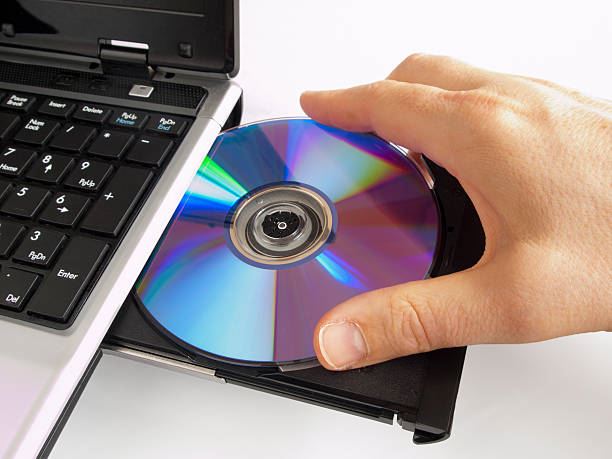The following is a Plus Edition article written by and copyright by Dick Eastman.
 Compact discs and DVDs have going the way of the dodo, and online streaming media will keep that trend going throughout 2023, 2024, and probably for many more years.
Compact discs and DVDs have going the way of the dodo, and online streaming media will keep that trend going throughout 2023, 2024, and probably for many more years.
Several articles have appeared online in the past few years describing the slowly dying music CD business. In short, sales of CD disks are being replaced by directly downloading music online to iPods, computers, and other music playback devices.
Remember the record and CD stores that used to be available at your local mall? Where have they all gone? What happened to the music store that sold CDs? How about the Blockbuster DVD rental store that used to be in your neighborhood? Where did it go? The reality is that Netflix, Hulu, Amazon Instant Video, Apple TV, and other online video services made the DVD rental stores obsolete. The same is true of music CDs: it is easier, much faster, and usually cheaper to download the music online that it is to go to a “brick-and-mortar” store to purchase the same things on plastic disks.
We are now seeing the same thing with the companies that sell genealogy-related CD-ROM disks. Music CDs are already plummeting, video DVD sales are plummeting, and I believe the same is happening to data CDs.
For more than two decades, genealogists have been enthusiastic buyers of genealogy data CDs. At least, looking in my storage area in the basement confirms that I have been an enthusiastic buyer! I have several hundred genealogy data CDs stored in a large box, most of which haven't been touched in years.
I assume that most other genealogists have also been purchasing CDs. I know the CD-ROM disks from Ancestry.com, (formerly Broderbund, with CDs designed to be read by earlier versions of Family Tree Maker), FamilySearch, HeritageQuest, Genealogical Publishing Company, Heritage Books, Family Chronicle, New England Historic Genealogical Society, Progeny Software, S&N Genealogy Supplies in England, Archive CD Books (from several countries), and dozens of other companies and societies have sold thousands of copies. In addition, I see dozens of independent genealogy CD-ROM disks offered for sale on eBay; most are apparently produced by one-person businesses. Prices vary widely, but $10 to $50 US seems to be the price range for most genealogy CDs with a few others at higher or lower prices.
There is but one problem: Of the multiple computers that I own, I don’t have a single one that has a built-in CD or DVD-ROM player! (I do have one ancient computer with a built-in CD player that I keep “just in case I need it.” There’s one problem with that: it is stored in a closet, underneath other devices that I no longer use. It hasn’t been powered on for 3 or 4 years and I don’t even know if it still works. I haven’t had a need for it in at least 3 or 4 years, maybe longer.)
Shouldn't we be accessing genealogy information online instead of on CD-ROM disks?
Why would we ever want to change to online distribution? I see several reasons, some of which are already major factors:
The remainder of this article is reserved for Plus Edition subscribers only. If you have a Plus Edition subscription, you may read the full article at: https://eogn.com/(*)-Plus-Edition-News-Articles/13084095
If you are not yet a Plus Edition subscriber, you can learn more about such subscriptions and even upgrade to a Plus Edition subscription immediately at https://eogn.com/page-18077.
 Latest News Articles
Latest News Articles If you do not see a Plus Sign that is labeled "Add comment," you will need to upgrade to either a (FREE) Standard Edition or a (paid) Plus Edition subscription
If you do not see a Plus Sign that is labeled "Add comment," you will need to upgrade to either a (FREE) Standard Edition or a (paid) Plus Edition subscription